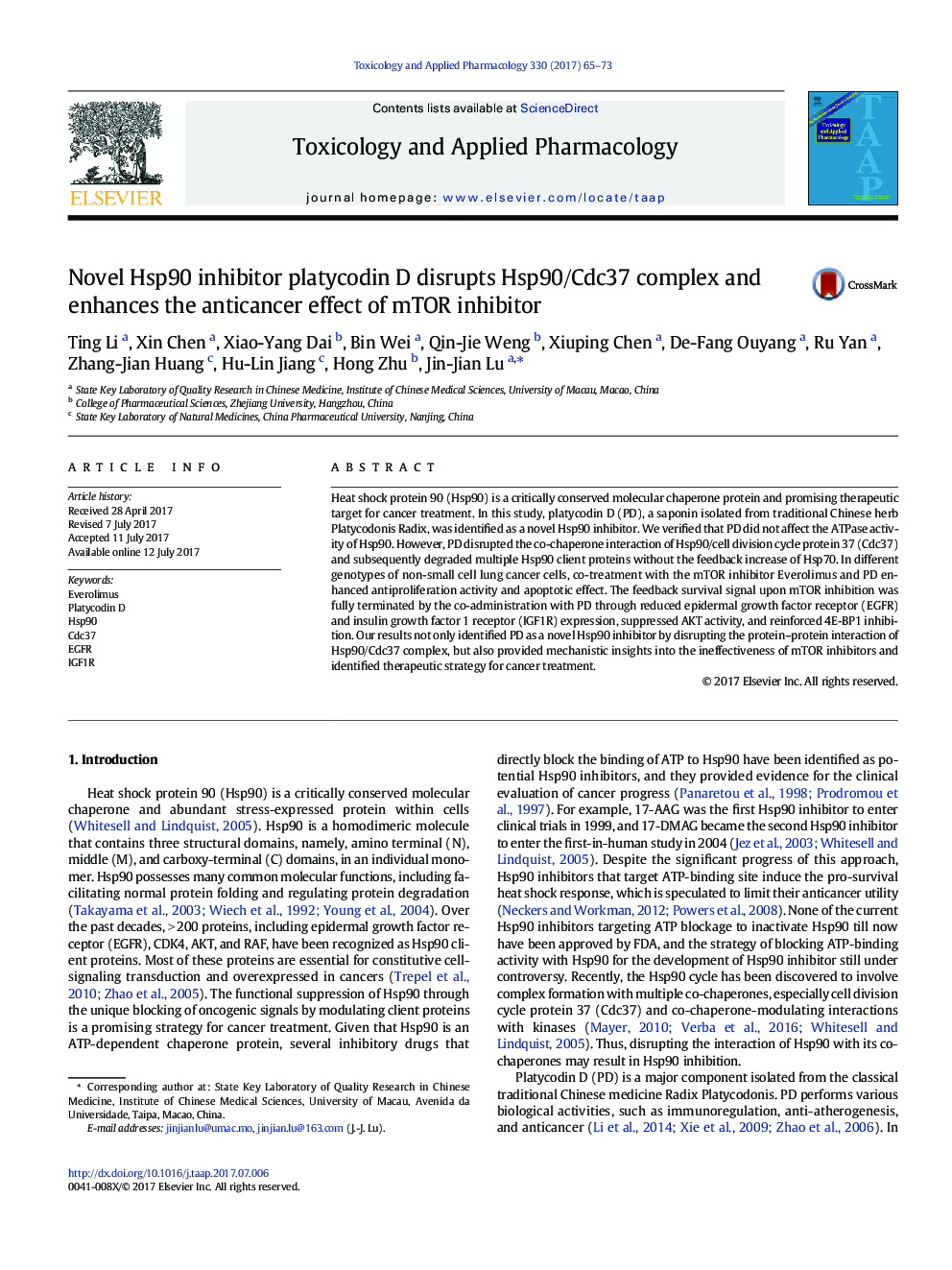| Article ID | Journal | Published Year | Pages | File Type |
|---|---|---|---|---|
| 5558464 | Toxicology and Applied Pharmacology | 2017 | 9 Pages |
â¢Platycodin D (PD) is a novel Hsp90 inhibitor by disrupting Hsp90/Cdc37 complex.â¢PD terminated the survival signal induced by mTOR inhibition via feedback blockade.â¢Combining mTOR inhibitor and PD together exhibited amplified anti-NSCLC effect.
Heat shock protein 90 (Hsp90) is a critically conserved molecular chaperone protein and promising therapeutic target for cancer treatment. In this study, platycodin D (PD), a saponin isolated from traditional Chinese herb Platycodonis Radix, was identified as a novel Hsp90 inhibitor. We verified that PD did not affect the ATPase activity of Hsp90. However, PD disrupted the co-chaperone interaction of Hsp90/cell division cycle protein 37 (Cdc37) and subsequently degraded multiple Hsp90 client proteins without the feedback increase of Hsp70. In different genotypes of non-small cell lung cancer cells, co-treatment with the mTOR inhibitor Everolimus and PD enhanced antiproliferation activity and apoptotic effect. The feedback survival signal upon mTOR inhibition was fully terminated by the co-administration with PD through reduced epidermal growth factor receptor (EGFR) and insulin growth factor 1 receptor (IGF1R) expression, suppressed AKT activity, and reinforced 4E-BP1 inhibition. Our results not only identified PD as a novel Hsp90 inhibitor by disrupting the protein-protein interaction of Hsp90/Cdc37 complex, but also provided mechanistic insights into the ineffectiveness of mTOR inhibitors and identified therapeutic strategy for cancer treatment.
